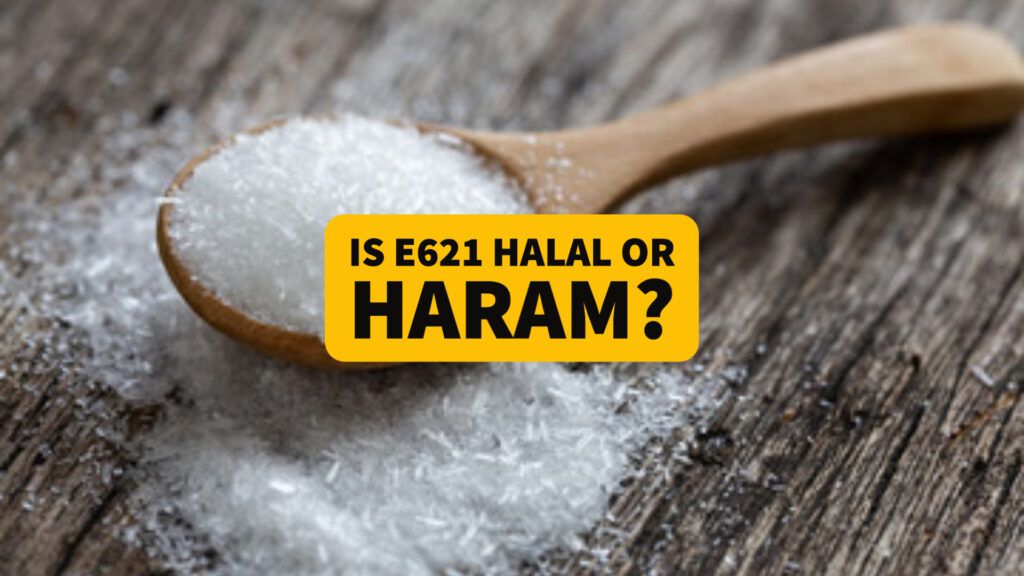Is MSG (Monosodium Glutamate) OR E621 is Halal or Haram in Islam?

E621, also known as monosodium glutamate (MSG), is a flavor enhancer commonly used in processed foods. Determining whether E621 is halal (permissible) or haram (forbidden) in Islam depends on its source and the method of production. Here are the key points to consider:
Halal Considerations
- Source of E621:
- If MSG is derived from plant-based sources or through a fermentation process using halal ingredients, it is generally considered halal.
- Many commercial MSG products are produced through bacterial fermentation, using starch or sugar as a starting material, which are typically plant-based and considered halal.
- Production Process:
- The production process should not involve any haram (forbidden) substances, such as alcohol or enzymes derived from non-halal sources.
- Certification:
- Obtaining halal certification from a recognized authority can provide assurance that MSG meets halal standards. Many manufacturers seek such certification to cater to Muslim consumers.
Haram Considerations
- Non-Halal Ingredients:
- If MSG is produced using enzymes or other substances derived from haram sources, such as pork or non-halal animal products, it would be considered haram.
- Contamination:
- Cross-contamination with haram substances during production or packaging can also render MSG haram.
Conclusion
The halal or haram status of E621 (MSG) depends primarily on its source and the manufacturing process. To ensure that MSG is halal, consumers should look for products that are halal-certified and check ingredient lists and manufacturing details.